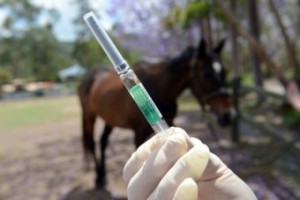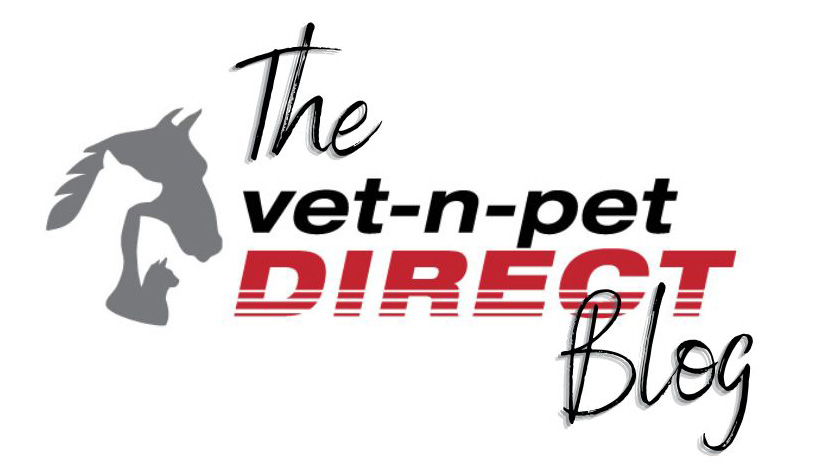
Image sourced from www.abc.net.au/news
June to October has proven to be the most prevalent time for Hendra Virus and so far this year a number of cases have been confirmed in Queensland and Northern New South Wales. With Hendra Virus back in the news headlines I wanted to discuss the vaccination and in particular the risks and effects of this contagious disease on the veterinary industry.
Never before has there been a disease that can have such a detrimental effect on the horse industry, including both people and horses. Equine Influenza (EI), had an effect on all horses with horses falling ill and horse movement restrictions being in place for a number of months, but the difference between that and Hendra was that there was no risk to human life and only a few horses died. Hendra Virus by comparison, is so dangerous that all horses that have contracted the virus have died or been euthanased. So far seven people have been infected and four of those have died. There is currently no cure or registered treatment for Hendra Virus. It is this risk to human life which is causing veterinarians to question whether they should be visiting or treating unvaccinated horses. Some vets are reportedly already refusing to visit unvaccinated horses and I can only presume that this number may increase.
I can understand why vets are questioning and deciding not to treat unvaccinated horses. With Hendra presenting with so many unpredictable symptoms it can be difficult to know if a call out for what appears to be a routine illness, like colic or choke, is actually as simple as that or in fact the early signs of Hendra Virus. The risk to the veterinarians life, as well as vet nurses and ancillary staff, is not the only concern. The potential damage treating a Hendra positive case can have on the veterinarian’s business can also be substantial. The vet may not be able to work while waiting for the all clear and their clinic could be put under quarantine therefore essentially closing the business down for a number of weeks.
I guess the real question is, should vets be expected to put their life at risk to treat unvaccinated horses? I truly believe that it is a personal choice that each vet, vet nurse and clinic needs to decide without attracting criticism. I know that I certainly would not like to be put in that situation. I can imagine that many vets will struggle with this decision as to them their heart wants to treat sick animals but the risk to their life and the lives of their staff needs to be considered as well.
Currently in Australia only about 11% of horses have been vaccinated for Hendra Virus, with the large majority of these being in Queensland. Unfortunately the cost of getting horses vaccinated is what is stopping the majority of people from doing so. The average cost of the vaccine is around $180 and horses do require a booster every six months. The manufacturer of the vaccine, Zoetis, have stated that they will soon be looking to lengthen the required booster time out to 12 months which will help ease the cost. As a horse owner the only way you can look at it is that the $180 is to save your horses life and protect the lives of all people that come in contact with your horse.
Hendra Virus is often discussed as only a Queensland or Northern New South Wales problem however Equine Veterinarians are calling for it be recognised as a possible killer Australia Wide in hope that horses across the country will be vaccinated. In a recent radio interview Dr Frank Condon, president of Equine Veterinarians Australia, discusses his view on the likelihood of Hendra virus spreading anywhere there are flying foxes. “The antibodies to Hendra have been found in flying foxes right up and down the eastern seaboard, in Melbourne and across into Western Australia.” Dr Condon goes onto say “If people think it’s a Queensland disease or a Northern New South Wales disease they’re kidding themselves”. To listen to Dr Condon’s radio interview please click here.
If you are looking for more information on Hendra Virus please visit our blog on Hendra Virus or the Biosecurity Queensland website. For further information on the Hendra Vaccination please click here.
If your horse is unwell or you suspect that they may have Hendra Virus please contact your veterinarian immediately or Biosecurity Queensland on Biosecurity Queensland on 13 25 23 (during business hours) or Emergency Animal Disease Watch Hotline on 1800 675 888 (24 hour hotline) and be sure to exercise extreme caution when handling them.
Until next time,
Bec
Information sourced from;
http://www.abc.net.au/news/2014-06-06/nrn-hendra-vaccination-rate-06-06-14/5505902
http://www.abc.net.au/news/2014-06-23/hendra-outbreak-response/5543832
https://www.business.qld.gov.au/industries/farms-fishing-forestry/agriculture/biosecurity/animals/diseases/hendra
